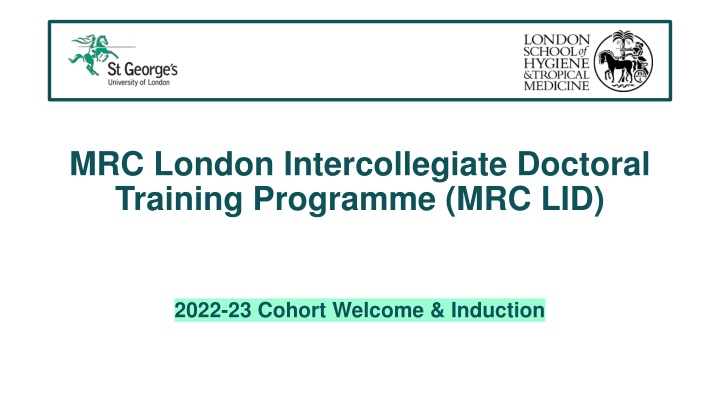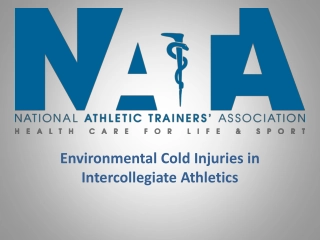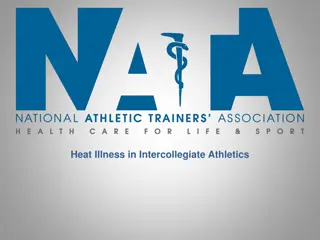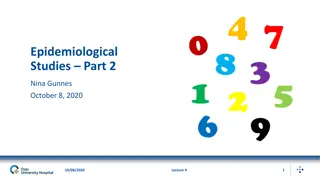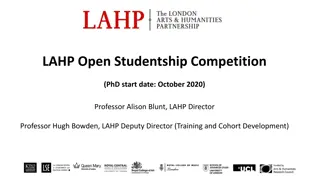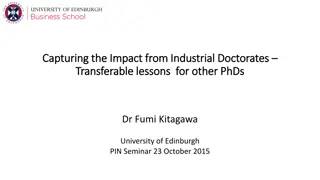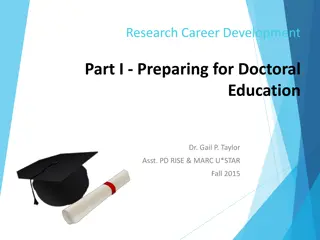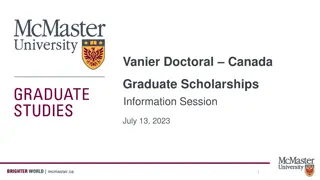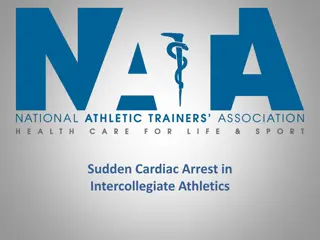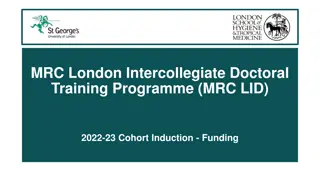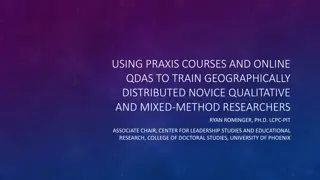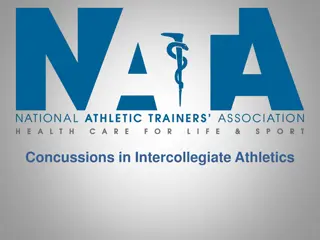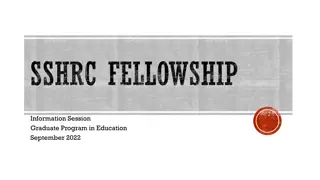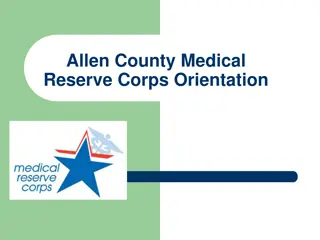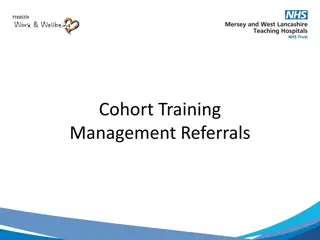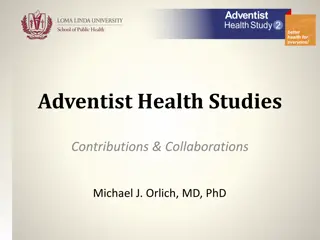Overview of MRC London Intercollegiate Doctoral Training Programme 2022-23 Cohort
The MRC London Intercollegiate Doctoral Training Programme (MRC.LID) for the 2022-23 cohort is a collaborative initiative between LSHTM and SGUL, offering up to 27 studentships in areas such as antimicrobial resistance, genomic medicine, asthma, cardiovascular disease, and more. The programme includes complementary training in various skills and is overseen by the DTP Board, ensuring strategic direction, funding management, and student support. Students can benefit from various awards, training opportunities, and flexible funding structures to pursue their research goals.
Download Presentation

Please find below an Image/Link to download the presentation.
The content on the website is provided AS IS for your information and personal use only. It may not be sold, licensed, or shared on other websites without obtaining consent from the author.If you encounter any issues during the download, it is possible that the publisher has removed the file from their server.
You are allowed to download the files provided on this website for personal or commercial use, subject to the condition that they are used lawfully. All files are the property of their respective owners.
The content on the website is provided AS IS for your information and personal use only. It may not be sold, licensed, or shared on other websites without obtaining consent from the author.
E N D
Presentation Transcript
MRC London Intercollegiate Doctoral Training Programme (MRC LID) 2022-23 Cohort Welcome & Induction
DTP Background Partnership between LSHTM & SGUL 1. Doctoral Training Programme 1 (2016/17 2021/22): 66 studentships awarded 2. Doctoral Training Programme 2 (2022/23 2024/25): Up to 27 studentships available (9 awarded) Partnership based on Shared research priorities Examples are covered by broad themes of the DTP Collaborative research Examples include: Antimicrobial resistance; Genomic medicine; Understanding asthma; Cardiovascular disease; Built environment, lifestyle and health Complementary training Examples include: Genomic Medicine; Quantitative skills; Interdisciplinary skills Enhanced by geographical proximity (Northern Line) & international partnerships and collaborations.
DTP Board RESPONSIBILITIES LSHTM SGUL Role of DTP Board Strategic direction Ensure DTP meets MRC/UKRI requirements Oversee finance and administration of the DTP funding Supervisor & project selection Recruit students based on potential and motivation Mentor students Support exceptional, student-led training DTP Lead/Co-chair Neil Pearce Carwyn Hooper Institutional oversight Suzanne Filteau Equity, Diversity & Inclusion Julia Pescarini (for Elizabeth Brickley) Vanessa Ho Industrial partnerships Ian Douglas Alexis Bailey Theme: Global Health Moffat Nyirenda Phil Cooper Theme: Health Data Science Elizabeth Williamson Julia Critchley Theme: Translational & Implementation Research Martin McKee & Adrianna Murphy Julian Ma Theme: Infectious Disease John Edmunds Jodi Lindsay Non-specific Cally Roper Rachel Allen Student representatives 2022-23 tbc Ella Whittle
How does the DTP fit within institutions? Student Representation Research Degree Committees at LSHTM & SGUL registration, performance monitoring, regulation MRC LID Board Funding strategic direction & programme management
Studentship Awards Training opportunities 3 month FTE placement Fees + Stipend (living allowance) Research Training & Support Grant (RTSG) allowance + Travel & conference allowance Additional flexible funding 1+4 Award iCASE +4 Award 1 year FTE Masters & 4 years FTE PhD 4 years FTE PhD See separate MRC LID video for more detail on your funding.
Research project And so And so any changes to either project or supervisory team must be approved by MRC LID board before they go ahead. Before your project was advertised, the board measured it against these criteria (to ensure that projects are well-thought through; meet MRC skills criteria; and meet promises our DTP made to MRC during the grant bid). Does the project address an important issue in an MRC LID theme? Theme Is the project student-centred? Does the project provide high quality skills training in one or more MRC strategic skills areas? Training Does the supervisory team have a good track record in research? Have all supervisory team members undertaken required MRC LID and institutional training? Are the supervisory team engaged with DTP EDI focus? Team Can the project be carried out within your RTSG allowance (with other training too)? And/or Do the supervisory team have access to sufficient additional research funds to fund the project? Funding Any changes must also be approved by the primary institution, as per standard research degree regulations and processes. Is there collaboration and/or co-supervision between DTP partners? Are there opportunities for external collaboration? If the project has an international focus, are there opportunities to engage overseas collaborators in the supervisory team? Collabor ation
Training & other opportunities Exceptional; student-led; more than a standard PhD INDIVIDUAL COHORT Research project Excellent supervision of a student- centered, interdisciplinary high quality research project with a focus on at least one MRC priority skill Additional skills As determined by student, supervisors, and MRC LID mentor (modules; external options) Internship/Placement Institutional Transferable skills training (compulsory) DTP (MRC LID & other MRC-funded students) Various training sessions throughout the year, including two cohort days (100% attendance expected) Peer support Public engagement
Conferences & Travel Travel & conference attendance likely to vary depending on student and area of study. MRC LID expects conference attendance over duration of award of two UK or EU conferences one overseas conference. Travel & conference allowance should be used for travel/accommodation. If more is required students can dip into their RTSG allowance (if it s available). RTSG funds can be used for formal conference dinner but not other food & drink. Your primary institution may have other sources of funding for research degree students to attend conferences. Please check.
Placement/Internship Compulsory (not optional) Duration 3 months FTE What? Up to you. Must be completely unconnected to your PhD project. Where? Up to you. Please discuss potential visa implications with us at early planning stage. When? After upgrading. At a time that best suits your research & host institution. What money? Support for Travel Accommodatio n Possibly health & travel insurance Use RTSG allowance first. May be some flexible funding available How? Start discussions with host Submit project approval request to board Discuss funding arrangements with DTP Manager Check whether collaboration agreement is required
Reporting & admin Flexible Funding Final destination Annual Training Profile on MRC Feedback Form Feedback Form RTSG actual Placement & Annual MRC ResearchFish expenditure Placement LID pages Approval Training Request Report Je-S Plan data Some examples of key information we need to get from you at various stages through your award (and after) to fulfil our reporting obligations. This information is used by the MRC to determine outputs and individual and DTP impacts, and to assess HEIs. The information (and quality of information) provided may have implications for future funding and awards. Please help us to support you by engaging with the programme and responding to requests for this (and any other) information.
General information & key contacts For MRC LID queries, including about fees and stipend payments, flexible funding applications, reporting etc For general info about Research Degrees at your primary institution SGUL Post Graduate Research Office LSHTM - EPH LSHTM - PHP MRC LID LSHTM - ITD MRC LID web pages (especially current students section) Jenny Fleming Joanna Bending Lara Crawford, MRC LID Manager Derilyn Frusher Helen White Lauren Dalton Renee Olivel LSHTM Scholarships Team
